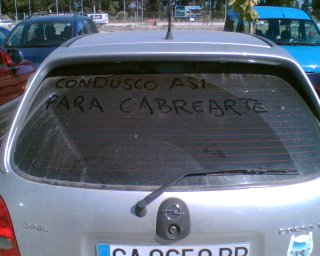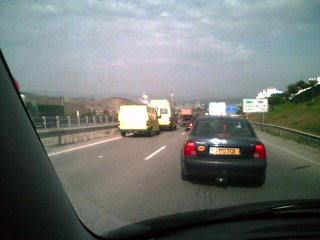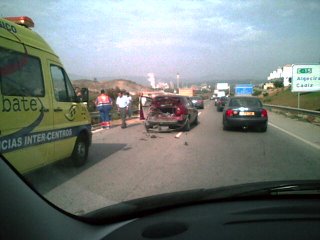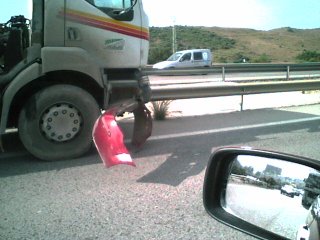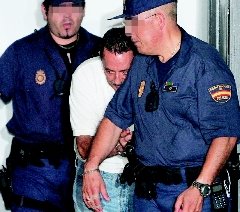
Julian Muñoz finally goes to jail. Photo (c) La Razon
Miguel Ángel Torres is at it again. This time he's sent Julian Muñoz to jail without bail.
Muñoz, aged 58 and partner to the singer Isabel Pantoja was arrested Wednesday night for his part in the Operation Malaya scandal, including defrauding public funds.
Remember that Muñoz was also arrested and convicted of corruption charges in 2004 and sentenced to six months jail (which he never served) and banned from public office for eight years.
After making his statement before the judge he was taken to the jail in Alhaurín de la Torre (Málaga). No bail was set.
The judge also sent to jail with out bail the ex Partida Andalucista counsellor and provincial secretary Pedro Pérez, The president of Aifos (a large construction company) Jesús Ruiz Casado, and the company's director general Jenaro Briales on charges of complicity. The financial director of Aifos, José Andrés León was released on bail of €50,000 also on charges of complicity.
The joke doing the rounds here goes like this.
"Question. Which town in Spain has the most mayors?"
"Answer. Alhaurín de la Torre!" [where the jail is - three ex-mayors in the jail and one outside]

